Do you struggle to measure the impact social media has on your business? Not sure what, how, or where to track important social media data?It can be easy to focus on the "doing" part of social media... crafting posts, designing graphics, scheduling, and so many other tasks that keep us busy but not productive.
That's why it's critical to look at what's working and adjust what's not. In my latest podcast, I share 4 actionable ways to track and measure the impact of social media on your business. Take a listen!
Subscribe to Brand Authority Podcast on iTunes
Highlights from episode 7
1. Define your success and set measurable goals
Social media marketing doesn't have to take up all of your time, neither does it have to be all work and no play. The key to success are strategic goals that allow you to track, measure, and analyze your progress.
And you can only track your success if you know what it looks like for your company. This means you need to develop your own definition of success - decide what you want to achieve and get your team on board that vision.
Next, use your definition of success to set measurable goals. Make sure they're aligned with your overall business goals.
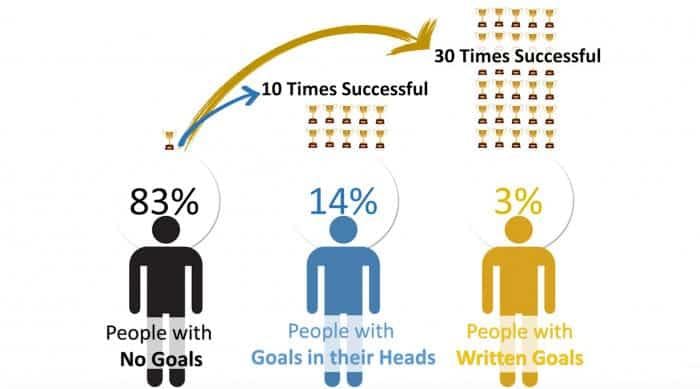
Source: Naveen Raju
For example, do you want to:
- Reach new markets
- Improve brand reputation
- Drive traffic
- Improve customer support
- Reduce overhead
- Generate leads
- Establish brand advocates
- Turn a single event into ongoing marketing dollars
- Decrease current advertising spend while increasing results
A great way to outline your goals is to write down 3 big, bold objectives and add 2-3 key results that will come out of your efforts.
It may look like:
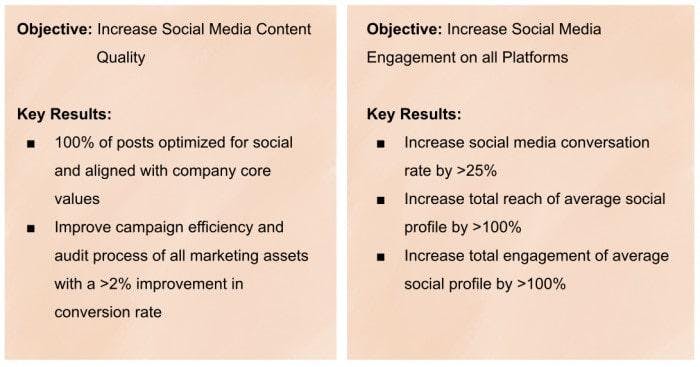
Once you determine your end goal for maximum social media impact, it's time to sift through the myriad of metrics out there and track the right ones.
2. Track the right metrics
It's important to know the difference between two types of metrics: Vanity vs. Actionable. Vanity metrics are exactly what you think - numbers that make your brand look good on a surface level (they might even boost your self-esteem) - but they do nothing to bring in leads, customers, or sales.
Of course, we all want a large fan base BUT what good is your audience if it's not full of people who are interested in your brand? That's why vanity metrics have very little use when it comes to reaching your business goals.
"Vanity metrics make you feel good, but they don't offer clear guidance for what to do." - Eric Ries, entrepreneur, blogger and author of The Lean Startup
Instead, you need to focus on actionable metrics - metrics that help you make decisions and take appropriate action. They're always tied to your objectives and to repeatable tasks you can improve on.
Tracking these metrics helps you see exactly what's working and what's not. While these may vary from one business to the next, here are a few actionable metrics that any business needs to keep track of to measure social media impact.
- Engagement
Engagement is the number of likes, comments, and shares your content is getting. Knowing how much engagement your posts inspire provides you with the information you need to move your audience along their customer journey.
After all, engagement is the result of a marketing strategy that directly engages consumers and encourages them to participate in the evolution of a brand.
Track your engagement to determine what's working at each step of the customer journey. Do A/B tests on your content and compare the number of likes, shares, and comments.
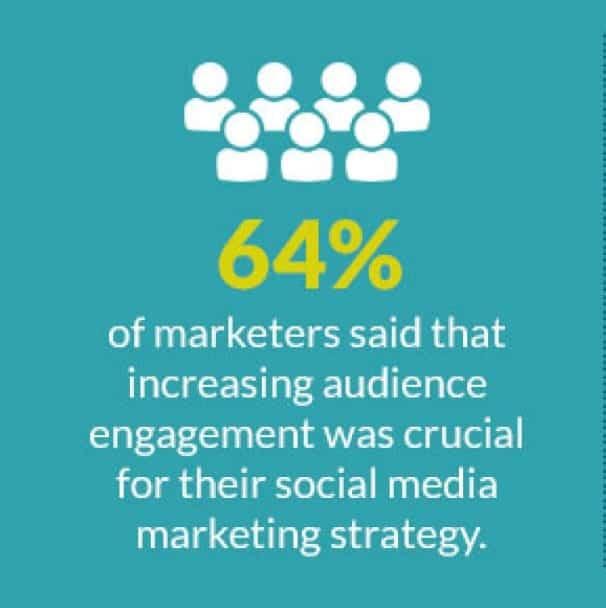
Source: Invesp Consulting
- Conversions
Likes and shares are great, but it's even better when they translate into real customers. That's why it's so important that you track your conversions. You need to see which of your efforts are getting people to click on your content, subscribe, and at some point, become a customer.
You can use Google Analytics to track conversions. Simply create an attribution report and you'll see what channel your conversions are coming from.
- ROI
Measuring ROI (Return-on-Investment) shows profitability. It helps you see whether the efforts and money you're investing are paying off. You can calculate ROI by dividing your profits from investment by the cost of investment. The answer is a percentage.
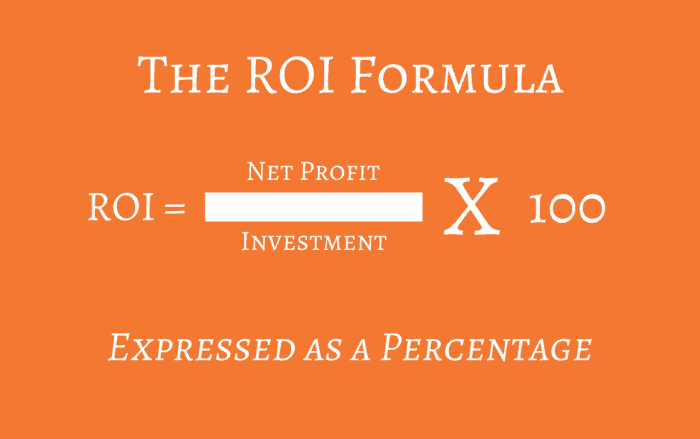
3. Quantify the value
It's important that you know what each client or sale is worth to your business. To do this, calculate how much it costs you to generate that lead. You'll have to look at the cost of each social post and time spent replying to mentions. Then compare that cost of time spent to the results received.
4. Pick the right tools
Most social networks have their own analytics. These are fantastic starting point for measuring social media impact. However, if you want to save even more time and get the bigger picture, there are tools you can use.
One of the best analytics apps is Simply Measured. It can help you analyze how your content is performing across all your social networks, and get the bigger picture of what drives your social media success. I've been using it for years!
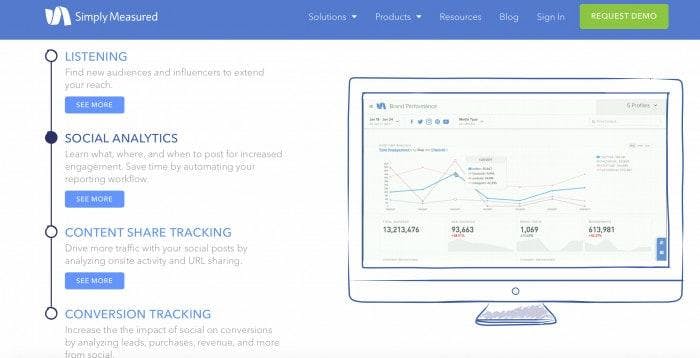
I also use Google Analytics regularly. You can set up goals right in your dashboard and give your team access.
Final thoughts
The smart way to make business decisions is to know what the outcome will be beforehand. Data can help you do that. So, track and measure the important metrics and use them to make your social media decisions. For more insight on the metrics to track, listen to my podcast, subscribe, and be sure to come back next week for more Brand Authority tips and strategies!
Subscribe to the Brand Authority Podcast
Tools and Resources Mentioned:
About Rebekah Radice
Rebekah Radice, co-founder of BRIL.LA, has traded narcissism for purpose. When not driving growth, you'll find her tricking family into thinking she's Emeril Lagasse - likely covered in marinara. The spotlight was fun, but impact is better. These days she's using 20+ years of brand brilliance for good.
